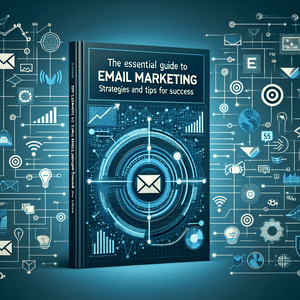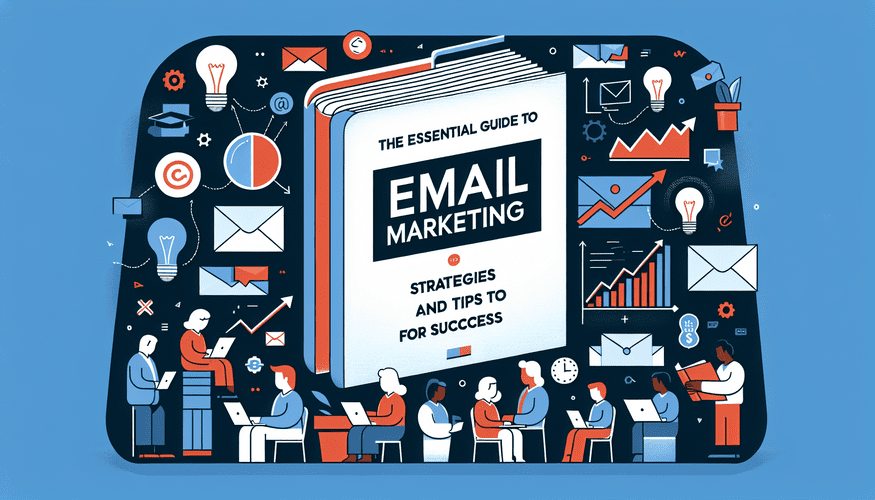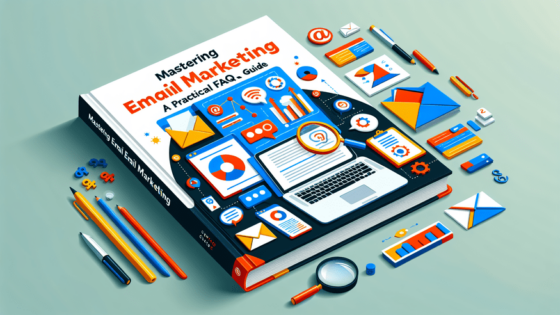Introduction to Email Marketing
Email marketing harnesses the power of email to promote a business’s products and services while fostering customer loyalty. As a versatile tool in the digital marketing arsenal, it enables businesses to inform subscribers about new offerings, special discounts, and additional services. Beyond direct promotion, email marketing serves to educate audiences about a brand’s value and maintain engagement between purchases. Platforms like Marketing.ValueMail are pivotal in designing, building, and optimizing email marketing strategies to maximize return on investment (ROI).
Leveling Up Your Email Marketing Strategy
Using tools provided by platforms such as ValueMail, businesses can enhance their brand presence and boost sales through effective email marketing. These tools allow for the creation of targeted campaigns that not only attract but also retain customer interest over time.
Understanding Email Marketing
Email marketing is a direct and digital marketing strategy that uses email to promote products or services, playing a crucial role in integrated marketing campaigns. This strategy is instrumental in lead generation, enhancing brand awareness, building relationships, and maintaining customer engagement through various types of emails.
The Evolution of Email Communication
Email’s story begins in 1971 when Ray Tomlinson sent the first-ever message, marking a new era in digital communication. He was also responsible for introducing the “@” symbol in email addresses, a convention that remains central to email syntax today. The medium saw its first commercial use in 1978 when Gary Thuerk of Digital Equipment Corp sent an email to 400 recipients as a marketing test, which unexpectedly generated a staggering $13 million in sales. This event demonstrated email’s potential as a powerful marketing tool, paving the way for its widespread adoption in business communications. As the internet became accessible to the broader public in the 1990s, email quickly became a fundamental mode of communication, prompting both innovations in marketing and necessitating new regulations, such as amendments to the U.K.’s Data Protection Act to include an “opt out” feature for marketing emails. 
The Benefits of Email Marketing
Email marketing is a powerful tool due to its direct call to action—emails remain in the inbox until acted upon. This strategy is excellent for driving traffic to various digital platforms, segmenting audiences, and conducting A/B testing to refine messaging. Notably, platforms like Mailchimp offer extensive resources, including email templates, to enhance marketing efforts.
Challenges in Email Marketing
Despite its advantages, email marketing faces challenges like potential spam, size limitations of emails, fierce competition, and varying customer engagement levels. Moreover, the design must be responsive across different devices to ensure optimal user experience.
Types of Email Marketing Campaigns
Email marketing can take several forms, each serving distinct purposes:
- Welcome emails introduce new subscribers to the brand.
- Newsletter emails keep subscribers informed about new offerings and content.
- Lead nurturing emails aim to convert interested subscribers into customers.
- Confirmation emails verify subscriber actions, such as purchases or sign-ups.
- Dedicated emails target specific segments of the subscriber list.
- Invite emails announce special events or product launches.
- Promotional emails maintain brand awareness and tease new products.
- Survey emails gather valuable customer feedback.
- Seasonal marketing emails leverage holidays and special occasions to engage subscribers.
Building an Effective Email Marketing List
Key strategies for building an email list include:
- Encouraging voluntary sign-ups rather than purchasing lists.
- Complying with email regulations such as CAN-SPAM, CASL, and GDPR.
- Using email to genuinely engage with customers.
- Sending emails judiciously to maintain subscriber interest.
Email Marketing Tips
Effective email marketing involves crafting compelling subject lines, integrating email with other marketing efforts, and continuously connecting with the audience through valuable content. 
Conclusion
Email marketing remains a vital strategy for connecting with customers and promoting business initiatives. When executed well, it can significantly enhance brand presence and drive sales, ensuring that a business remains competitive in the digital marketplace. As businesses look to the future, integrating advanced tools and strategies in email marketing will be key to achieving sustained success.
Try our Marketing ValueMail tool.


